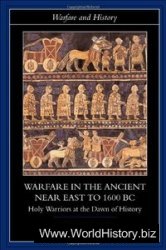It is worth asking what (and whom) Roman history was for, other than Roman posterity. Whatever the answer is, we may be sure that it was not written specifically for us. Yet our interests and agendas, conscious or unconscious, and not those of Romans, shape the way in which we conceive of, and approach, Roman history. Consequently, we need to reflect responsibly on what we are doing and why. And this is bound up with ideological questions.
The first Roman historian, Q. Fabius Pictor, a senator, wrote in Greek, in the late third century (the previous generation had seen a Latin verse epic: Naevius’ Punic War [Bellum Punicum]; see also Chapter 25). It seems highly probable, since he was criticized for his partiality (Polyb. 1.14.1-3, 3.8.1-8), that Fabius’ version of the struggle with Carthage defended Rome’s record, and sought to justify her imperialism. To this his decision to write in Greek may be in part owed; Greek was the language of historical prose at this time, in any case. His bias was a characteristic which Fabius bequeathed to his successors; it is connected to the Roman conception of the ‘‘just war’’ ( bellum iustum), the insistence that Rome fought only to avenge wrongs done to her or her allies.
Roman history was, then, chauvinistic. This is partly a function of the fact that, even down to the end of the Republic, it was local (rather than universal) history, concerned with Roman deeds and identity, both at home and abroad. Indeed, it had a practical didactic value, praising virtuous conduct, and discouraging vice; Romans often understood in moral terms changes for which we would today seek a long-term social or economic explanation.1 This reflects another fundamental characteristic of ancient histories: interest in individuals, in character.2 The message of much Roman history was that particular qualities, manifested in particular Romans, explained success. The favor of the gods guiding Rome to her destiny was also important. Roman history was committed and political from the start. Those who wrote it were overwhelmingly representatives of the great aristocratic houses, who had taken the lead in political disputes and wars of conquest. Most were as interested in the preservation of the sociopolitical status quo within Rome as with justifying her external wars. They also introduced gentilician, or family, biases: favorable portraits of the moderate Valerii, or of the Fabii, often derive indirectly from, respectively, Valerius Antias or Fabius Pictor, filtered through successive rewriting.
Beside narrative histories there were antiquarian works, encyclopedic treatments of the customs, institutions, rites, and place-names of the Roman People. The scope of their work can be gauged from a remarkable compliment paid by Cicero to Varro, whose Antiquities had just been published. Before Varro’s researches on ‘‘the age of our fatherland, its chronology, the rules governing its sacred rites and its priests, its civic and its military practices, the location of its regions and its sites, the names, natures, functions and causes of all things human and divine,’’ Romans had been so ignorant, says Cicero, that they were like strangers in their own city (Acad. Post. 1.3.9).1 2 3 Flattery, of course; but testimony nevertheless to the fragility of certain types of knowledge, and of the gaps which could open up between oral tradition and informed interpretation. Antiquarian writing might seem dry, but it was also political, and highly conservative, written to preserve the past in the face of radical political and social change.4 As with narrative history, it sought to inculcate the values and cultural choices of the ruling aristocratic elite of the Republic.
All forms of creation of the past had ideological value; what was preserved was significant, and was meant to create matrices within which the res publica (the commonwealth) could be expressed by future generations. As writers disagreed about the (ideal) nature of the res publica, so their works took different slants. Tim Cornell puts it excellently when he writes: ‘‘[Roman historical writing] was an ideological construct designed to control, to justify and to inspire.’’5 The account of Rome’s political institutions by Polybius concluded with some observations on customs, designed to illustrate Roman character. One is the Roman funeral (6.53-4; see also Chapters 17 and 23), which in his opinion could not fail to inspire the onlooking youth to emulation; it is no accident that he appends a summary of the story of Horatius and the bridge (6.55), which he sees as typical of stories designed to fire the ambition of young Romans.
Polybius advocated political history (pragmatike historic, 12.25e, ‘‘political’’ in the broadest sense) as an aid to statesmen seeking guidance in particular circumstances. Roman writers, too, were well aware that writing and reading history could have serious practical consequences, and that thus it had to be written responsibly. Sallust (lug. 4.5-6) tells us:
Sallust’s presentation of great deeds not only illustrates exemplarity as a function of history, but in a sense also sets him on a level with Fabius Maximus and Scipio: both use the contemplation of the past as an incentive to virtue. Half a century before Sallust, the senator Sempronius Asellio wrote criticizing the bare lists of events which seem to have lain at heart of much earlier history: ‘‘books of annales [as opposed to proper history, see below] are completely unable to move men to be quicker to defend the res publica or to be slower off the mark when it comes to acting wrongly’’ (frag. 2 Peter = Gell. NA 5.18. 9).




 World History
World History









